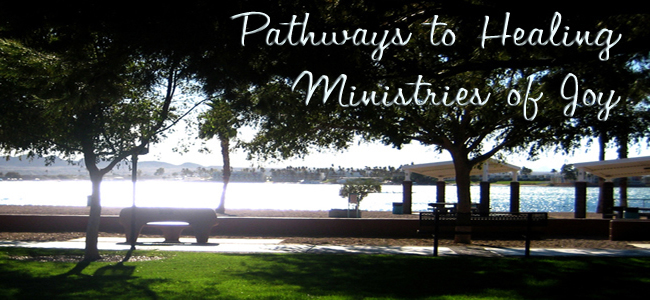Old challenges seen afresh
Years back our then bachelor son, Tim, “lost his heart” to a lovely, young woman. He was inspired, yet, distraught as her job found his friend moving to another state. However, Tim seemed tireless, able to make a “short distance” out of the 450 miles it took to visit her.
Once, during an hour together before his leave-taking he and I talked and prayed. Upon telling him of something I planned to do for his friend, Tim’s eyes filled with love and he said, “Oh, Mom … if you do that for her it will be as if you are doing it for me.”
A momentary sense of déjà vu—then a recognition that Jesus had spoken these same words yet a bit differently to His disciples: “I assure you, as often as you did it for one of my least brothers, you did it for me” (Matthew 25:40).
When Tim made this point on behalf of the one he loved his words were rich with meaning. In an instant I saw how it was Jesus’ love for His beloved that saw Him beseeching us to serve. Surely we have done it unto Him when we serve another who is in need.
Perhaps occasionally it is important to examine “heart motives.” Is the service we are giving to our fellow man really an act of love? Done with love of our Lord? Or, out of our hopes to please, gain favor or be noticed? Prestige? A place in the “inner circle”? Power? How often are deeds done out of a sense of obligation—working to pay back what we have received? The truth is we don’t have to prove our worth or earn our space! God created us. We are His children — good, acceptable and beloved. On the other hand, pride is, at times, a motivator. Pride can come through our always being the one who helps. Always needing to be the giver. Sometimes it is good and right to sit back, allowing others opportunity to serve. It is very important to also be the receiver of loving care.
There are times when we serve others out of sympathy. Even though this emotion is a valid response, we best be careful. Here again there can be a self-serving twist. Conrad Baars, MD wrote in Healing the Unaffirmed, that the emphasis must lie “on a state of being for and with another, of being moved inwardly by his goodness and unique worth prior to doing anything for him.”
Other times, out of fear of disappointing another or losing face, we give. But, when we look at the life of our Master we see that of all the things He could have done, He moved and acted only through the motivation of love. In His Words, “I do only what I see the Father doing.” And His Father, after all, was love. For, “… For God is love” (1 John 4:8).
Now let’s take a moment to look at what, for many of us, is a common failure: the inability to accept and lovingly serve our own selves. Dr. Carl Jung put it eloquently: “what if I should discover that the least of all brethren, the poorest of all beggars, the most insolent of all offenders, yes, even the very enemy himself – that these live within me; that I myself stand in need of the alms of my own kindness, that I am to myself the enemy who is to be loved?” Jung was concerned about our refusing to receive the least among the lowly in ourselves with open arms.”
We esteem our bodies enough to shave and bathe, groom and consume nourishing foods, yet whip the inner self into frenzies of doing as we have not yet discovered the beauty of being. Once we are able to cherish the true essence of ourselves and what we were created to be, that which is done to validate and love ourselves will act as spring boards moving us speedily and spontaneously into God-directed service. New fervor and vision will be held.
Could it be possible Jesus wore a smile when He said: “Love the Lord your God with all your heart, all your mind and all your soul. And love your neighbor as yourself”? Was He gently using humor to make His point of how far we are from loving God until we can also love ourselves? Then our neighbors?
Let us not mistake hedonism; pervasive consumerism; demanding or expecting allegiance from others; and outright selfishness for the act of validly loving one’s self. Truly knowing how to generously treat the person called “me” to the best life has to offer is an artful way to live.
In this heart’s place of celebration, let us “break forth into joy, giving thanksgiving for the beauty of our personhood.” And, in so doing heap love upon our Lord.


Leave A Comment